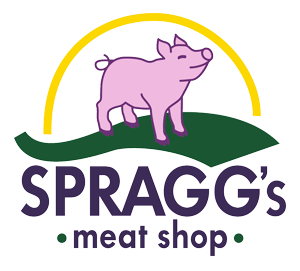To celebrate our new location, we’re offering in-store specials for the whole month of July!
Tried and True: Barbeque Through the Ages
Lean and Mean: Great Low-Fat Pork Recipes for Summer
Now that it’s about halfway through the year, most of our New Year’s Resolutions are long since forgotten, left behind during the cold months of January. But, that doesn’t always have to be the case. Whether it’s January, June, or November, it’s never too late to pick up those resolutions again and start eating healthy. Just in time for bikini season, here are a five of our favourite low fat pork recipes!
The 7th Annual Pig and Pinot Festival
Spragg’s Meat Shop Calgary Grand Opening – June 3rd, 2017
The Language of Pigs: It's More Than Grunts!
What to do with Pork Leftovers?
We’ve all been there. Sometimes, you overestimate how hungry your guests are going to be. Others, you make a little bit of extra food in the hopes of tiding you over for the week. Either way, sometimes, leftovers happen. Today, we’re going to answer an age-old question: What should you do with pork leftovers?
How do I store it?
Any kind of leftover pork can either be put in the refrigerator or frozen. When storing, be sure to keep it in an airtight container or Ziploc bag and take all meat off the bone.
How long can I keep it?
Before you can do anything else, you’ll need to know how long it’s safe to eat your leftovers after cooking. According to Health Canada’s website, cooked pork keeps anywhere from 3-4 days in the refrigerator, to 2-3 months in the freezer. So, if you’re not planning on eating those leftovers right away, be sure to freeze them!
So, what can I do with leftover pork?
Whether it’s ham, bacon, or anything else, the possibilities are endless! Here are just a few of our favourite ideas:
- Soup Stock – If any of your meat had bones in it, make sure they don’t go to waste. While not as widely used as, chicken or beef broth it’s equally as delicious.
- Chef’s Salad – Filling, classic, and best of all, no reheating required! We recommend this traditional Chef’s Salad recipe.
- Fried Rice – Cut your leftover roasted pork into a fine dice to add flavour to this delicious dish.
- Cuban Sandwich – Try this delicious take on a ham and cheese sandwich.
If you’d like even more ideas about what to do with your leftovers, be sure to check out Pork Be Inspired’s 11 Recipe Ideas for Leftover Pork Tenderloin, and the Spruce’s article on Using Leftover Bacon.
Can’t get enough of Spragg’s? Subscribe to our newsletter today! You can also follow us on Facebook, Twitter, Pinterest, and Instagram.
About Spragg’s Meat Shop Spragg’s Meat Shop is a family-owned and operated business located in Rosemary, Alberta. Greg and Bonnie Spragg raise hogs, process, and market their pork products direct to Albertan consumers. Spragg’s works hard to produce the best pork for Albertans, from the day the pigs are born, to the day the pork chops are cut, bacon is enjoyment eating their pork as they do getting it to your table.
Be a BBQ Pro and get the Perfect Hot Dog with our BBQ Box
Katsudon: A Mother’s Day Meal She’ll Appreciate
Why We Love Pork Farming in the Spring
Delicious Spring Dinner: Garlic Rubbed Pork Shoulder with Spring Vegetables
Why A Pig's Snout Is So Special
How to Roast Pork to Perfection
Baked Ham with Brown Sugar Glaze: the Perfect Easter Dinner
Free-Range is the Future of Raising Livestock
The History of Pig Domestication
Ever wondered why the modern domesticated pig looks so different from its wild relatives? Animal domestication is the answer. Thousands of years of pig farming has changed the look, and taste, of pigs, making them more favourable for our purposes. Read our latest blog post to learn more about how it happened!
Do You Know Your Pork Cuts?
Do pork chops, pork loin, ham, and Boston Butt, all mean the same thing to you? Maybe you’re not sure what part of the pig each cut is from. What’s worse is you’re probably not sure how best to prepare these delicious cuts. Read on to demystify pork cuts, learn where each piece comes from and how to cook them for the best results.
Pastured, Free-Range, All Natural and More: Making Sense of Production Claims
Valentine’s Dinner for Two: Beer-Braised Pork Chops
Planning on enjoying a romantic dinner at home for Valentine’s Day? In the middle of winter, sometimes there’s nothing more appealing than staying in and enjoying a hot meal in the cozy comfort of your own home. However, this doesn’t mean you can’t make this romantic holiday extra special. Cook up an extra special meal for you and your sweetheart to enjoy with these beer-braised pork chops from Country Living.
Why Our Free Range Pork Isn’t Certified Organic
One of the questions we get asked all the time is whether our pork products are certified organic. Technically, the answer is no. The term “organic” is governed and regulated by the federal government, and for pork products to be certified they must meet specific standards and undergo an organic certification process.

